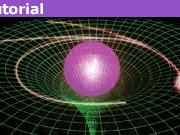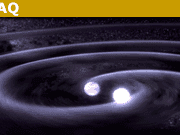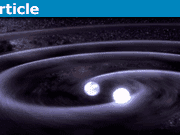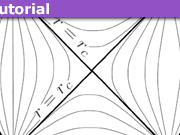PF’s policy on Lorentz Ether Theory and Block Universe
What is the PF’s policy on Lorentz Ether Theory and Block Universe?
Debates about the superiority or “truth” of modern Lorentz Ether Theory (LET) and the Block Universe (BU) concept are outside the scope of PF because:
- There is little or no debate among professional physicists about these issues (as opposed to e.g. interpretations of quantum mechanics)
- Positions on these issues are based on personal philosophical preferences and cannot be addressed (even in principle) by experiment.
The core of a scientific theory is a mathematical model which can be used to predict the outcome of experiments, i.e. in addition to the model, there is a mapping between elements of the model and outcomes of experiments. This mapping is sometimes called the “minimal interpretation”. Scientifically, theories are judged on how complicated their mathematical models are and on how well they predict the outcomes of experiments, with the best models being both simple and applying to a wide variety of phenomena.
There is often a desire by the philosophical community to add more structure to a scientific theory than what is represented by the “mathematical model and minimal interpretation” described above. These structures are also generically called “interpretations”, and are most prolific in the field of quantum mechanics. Interpretations typically include some postulates which can be used to justify the mathematical model, as well as some statements about which items in the derived model are “real” and which are measurement artifacts or limitations on our knowledge.
Often a single theory is compatible with many different philosophical interpretations. There is no possible way to resolve a dispute between different philosophical interpretations through appeal to experiment because all of them make the same predictions for all experiments. The choice between philosophical interpretations is therefore entirely a matter of personal philosophical preference.
For special relativity (SR), the mathematical model is the Minkowski space, a four-dimensional pseudo-Euclidean affine manifold. The symmetry group determining this structure is the proper orthochronous Poincaré (or inhomogeneous Lorentz) group which includes the Lorentz transform.
There are two primary philosophical interpretations: the Block Universe (BU) and Lorentz Aether Theory (LET). The BU considers the universe to exist as a single fixed 4D geometric structure that is not dynamically evolving over time since time is one of the dimensions of the structure. The LET considers the universe to be a 3D world evolving over time and with a single undetectable “true” rest frame.
Both BU and LET use the Lorentz transform, etc., to make all of their experimental predictions, and therefore they are scientifically indistinguishable, making the same experimental predictions in all cases. Because of this experimental equivalence, there is little if any serious ongoing debate between the two in professional physics circles (although the philosophy literature does have ongoing debate). Professional physicists are generally content with minimal interpretation and uninterested in philosophical interpretations.
Because there is little debate among modern scientists on this topic, and because such debates cannot be settled by appeal to experiment, and because such debates tend to degenerate into acrimonious and repetitive shouting matches, and because discussions of LET tend to attract crackpots, it is the policy of the PF Mentors who moderate the relativity forum that threads attempting to argue the superiority or veracity of either BU or LET will be closed with reference to this FAQ.
Education: PhD in biomedical engineering and MBA
Interests: family, church, farming, martial arts








“So, if a modern ether theory would explain, say, some properties of the Standard Model of particle physics, it would be allowed to discuss it here?”Yes. This point has already been made in posts 19, 20, 22, and 25.
This line of discussion has quickly become repetitive and unproductive, a good example of why these discussions are not permitted. Further repetition will be deleted.
“Discussed them? Well understood? Give an example where it has been discussed,”That is a good suggestion, thank you. I will add some references to the insights article. Hopefully next week.
“And, by the way, if it has been discussed, and well understood, why ban it?”The reasons are already mentioned in the article.
“The wrong prejudice that the Michelson-Morley experiment has falsified the ether in general is very common. It is false, the Lorentz ether is a counterexample. But once the Lorentz ether is banned, this common error cannot be corrected.”That common error can still be corrected in the way you mention.
What is what is not allowed is any assertion that either BU or LET is true. The existence of either interpretation and their experimental equivalence can be used to disprove the assertion that experiments prove the other one.
“Then I derive, using Bell’s theorem, that the BU predicts Bell’s inequality”This is a nonsensical claim. Bells theorem is not part of BU. This is like saying “I derive using Maxwells equations that GR predicts …”
The BU portion of the derivation would use the Lorentz transform. As would the LET portion of the derivation. It is impossible to come out with a different prediction.
Anyway, the repetitiveness of this discussion with you already shows why the policy is good.
“I prefer the variants based on Reichenbach’s principle”
Can you give a reference? I’ve never seen one of these variants.
“The Lorentz ether assumes classical causality in the preferred frame. It forbids causal influences into the past, where the past is defined by true time. It does not forbid faster than light causal influences of the future, defined by true time.”
I’ve never seen a version of “Lorentz ether” that does this either. All the versions I’m aware of make exactly the same predictions for all experiments as standard SR, so they predict that spacelike separated events cannot be causally connected, since that’s what standard SR predicts. (Btw, this prediction does not require the BU interpretation; it just requires the standard postulates of SR.)
“No. The classical prediction is that Bell’s inequality should hold. ”
Ups, sorry. Of course.
”
Also, the derivations based on classical theory make no mention of Reichenbach’s principle, nor of the Block Universe or any other interpretation of SR.
”
There are, of course, different variants. I prefer the variants based on Reichenbach’s principle, instead of, say, realism, because realism is much more diffuse. Reichenbach’s principle is, in comparison, much more clear, it is clear what you need to apply it – a correlation – and it is clear what it gives you – the requirement of a a causal explanation.
”
In fact they don’t even mention SR except as a motivation for the various versions of the locality assumption (basically that spacelike separated events should not be causally connected).
”
Correct. But this is the place which requires the BU. The Lorentz ether assumes classical causality in the preferred frame. It forbids causal influences into the past, where the past is defined by true time. It does not forbid faster than light causal influences of the future, defined by true time.
You need the BU, with all allowed times being equal in all aspects, thus, with all of them forbidding causal influences into their own past, to have Einstein causality.
”
It did more than that. It predicted observables like the ratios of volumes of gases in chemical reactions, which had to be taken as ad hoc empirical quantities with no theoretical explanation under other theories of matter.
”
So, if a modern ether theory would explain, say, some properties of the Standard Model of particle physics, it would be allowed to discuss it here? As far as I understand, it would be forbidden, not?
”
This wasn’t really a theory so much as a lack of a theory; the “temperature was simply a field” model made no predictions about how temperature should behave relative to other thermodynamic variables like pressure and volume. But it was well known by the 19th century that there were definite relationships between these variables. The atomic theory made predictions about these relationships.”
Of course, a field theory also postulates some equations. Like the SM, which also postulates some equations for the fields. To name the SM “lack of a theory” is, IMHO, also an appropriate description.
“BU + Reichenbach’s principle gives a physical prediction, the violation of Bell’s inequality.”
No. The classical prediction is that Bell’s inequality should hold. The actual experimental result is that it is violated–but that shows that the classical theory cannot be correct.
Also, the derivations based on classical theory make no mention of Reichenbach’s principle, nor of the Block Universe or any other interpretation of SR. In fact they don’t even mention SR except as a motivation for the various versions of the locality assumption (basically that spacelike separated events should not be causally connected). The most straightforward derivation, due to, IIRC, a later paper of Bell’s than the original one, only assumes factorizability of the conditional probabilities involved, which is an even simpler version of locality/causality than other derivations. There are other related results that make predictions about experiments where no probabilities are involved at all–they predict that certain results should never be observed, whereas QM predicts that they should. IIRC these related results have not (yet) been experimentally tested.
“QM is not even mentioned in the proof of Bell’s theorem.”
No, but it is the only theory we know of that predicts that Bell’s inequalities should be violated–which, of course, they are in the actual experiments.